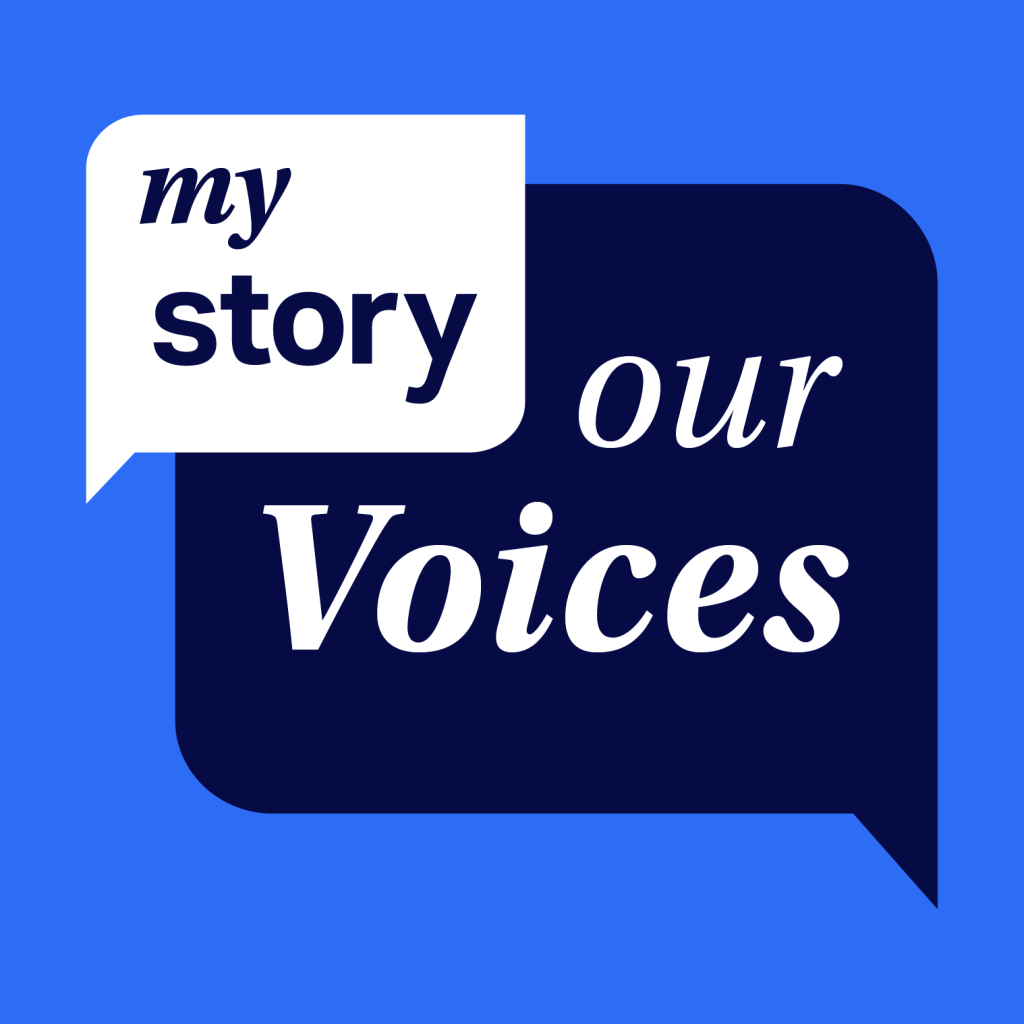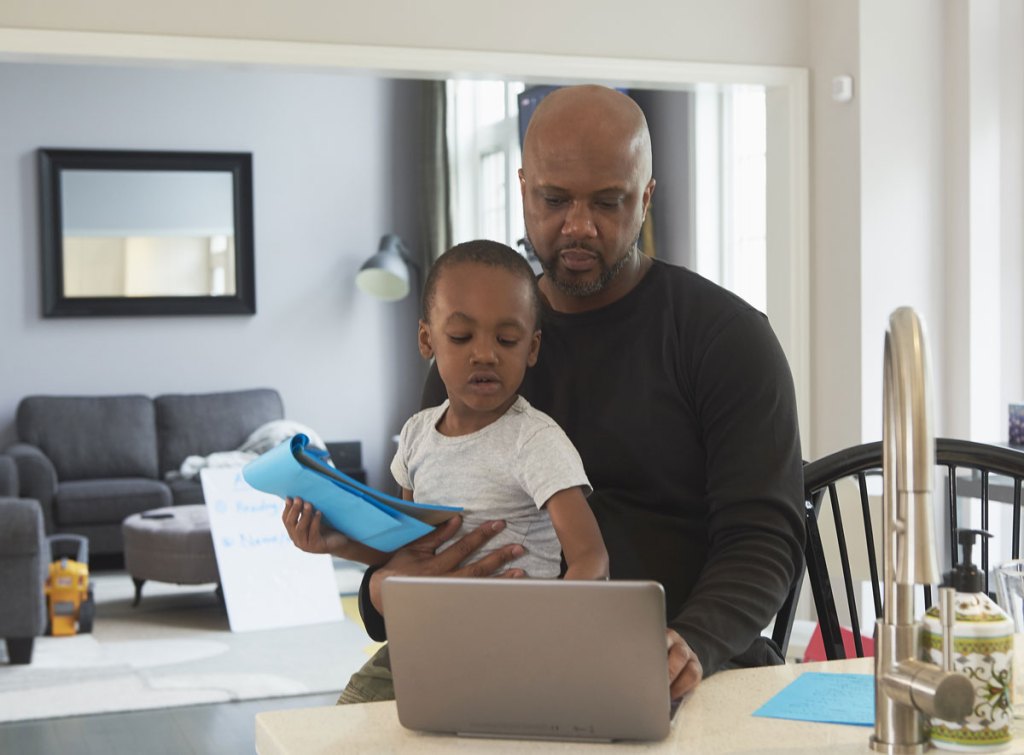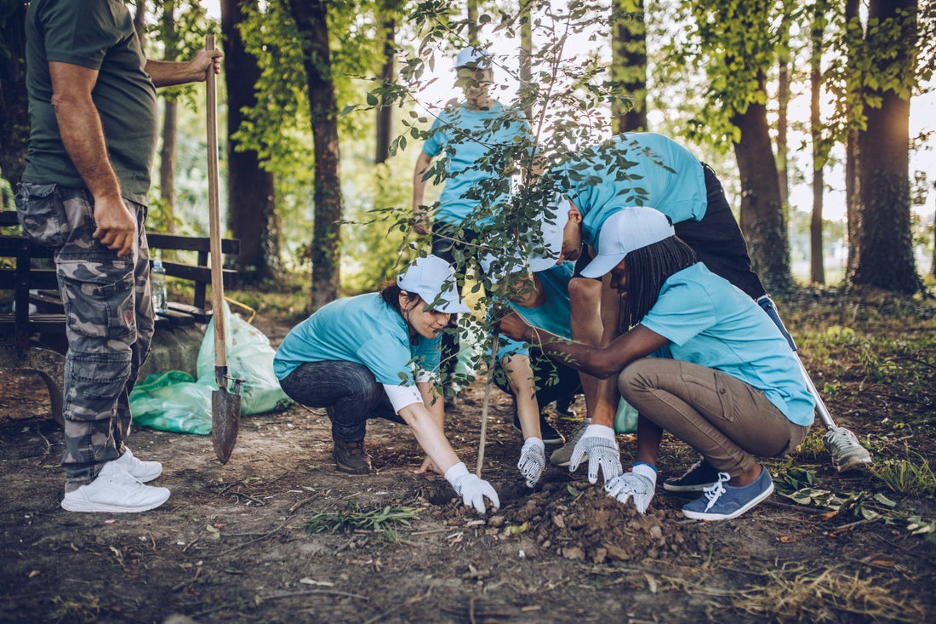Krystal talks about the importance of optimism
Join hosts James Anderson and Funda Kalemci on this episode of My Story Our Voices, an NIQ DEI podcast, as they sit down with guest Krystal Dawson to hear her story about the importance of optimism.
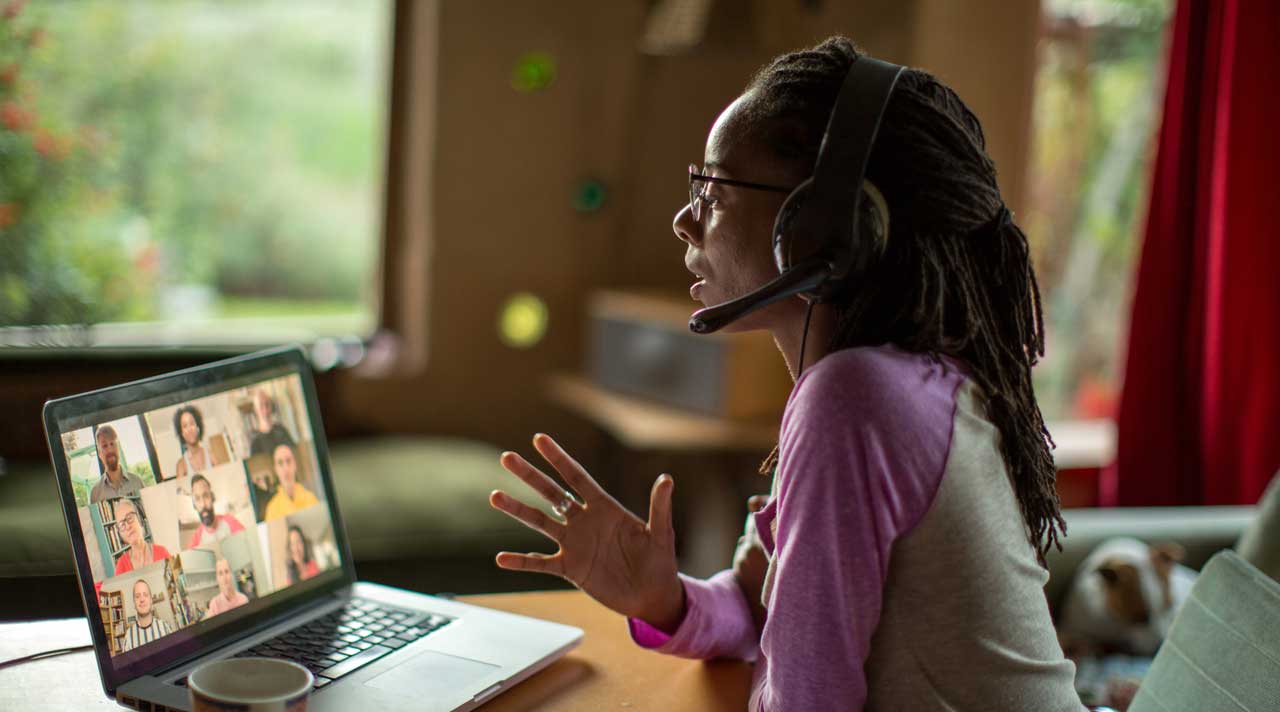
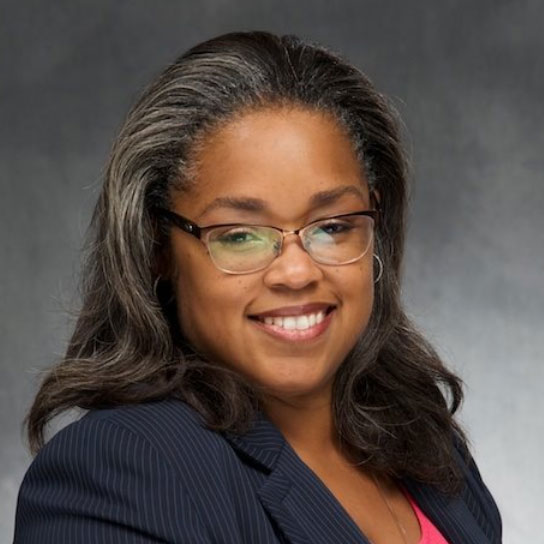
Krystal Dawson
Chicago, Illinois, USA
Vice President | Account Development – BASES
Krystal has been with NIQ for 19 years. When she manages to get a breather from work, she spends her personal time hanging out with her spouse of 24 years, 14-year old twin boys, painting, live music, and all things superhero!
Lorem Ipsum…
Lorem ipsum dolor sit amet, consectetur adipiscing elit. Duis felis arcu, pulvinar a ipsum vel, elementum pharetra massa…
Lorem Ipsum…
Lorem ipsum dolor sit amet, consectetur adipiscing elit. Duis felis arcu, pulvinar a ipsum vel, elementum pharetra massa…
Transcript
The views and opinions expressed in this podcast belonged to the individuals who shared them and do not necessarily represent Nielsen IQ. Note that this podcast discusses sensitive topics that may be triggering for some. For more information specific to this episode, see the episode description.
Laura Batien: Hi everyone and welcome to My _ Story. My name is Laura Batien, and if this is your first time tuning in, then let me tell you what this podcast is all about. In a nutshell, it’s about stories. Your stories. We think stories are important because when we tell them we open the door and allow others to see the experiences that shaped us, that challenged us and helped us grow. By doing this, we can create a culture where open dialogue is encouraged, and we can have the space to discuss important topics in a transparent and courageous manner. So, minimize that e-mail tab, mute your chat and take a little break to listen to a NielsenIQ Story.
Funda Kalemci: Hello everyone. Thank you so much for tuning in for our My _ Story podcast. My name is Funda Kalemci. My pronouns are she and her. I am the global leader for Diversity, Equity, Inclusion and Corporate Citizenship. I know it’s a mouthful, but I am super happy and proud about the job that I do. And I am today joined by my co-host James. James…
James Anderson: Hi there, Funda. Yes, my name is James Anderson, and my pronouns are he and his and him. And I am a Senior Analyst here at NIQ based in the Toronto office. And I’m also very, very excited to be part of My _ Story as always so we can hear more really fascinating stories from some of our associates. How are you doing today, Funda?
Funda Kalemci: I am doing great and cannot wait to hear our guest’s story. Are you ready for it?
James Anderson: I am absolutely ready.
Funda Kalemci: Alright, so today we’re hosting Krystal Dawson. Krystal is one of our remote associates. She lives in the Greater Chicago area or as she calls it, Chicagoland. She is the Vice President of the Account Development on our BASES business. She’s been with the company for 16 years, or it’s going to be 16 in April. In her words, when she manages to get a breather from work, she spends most of her personal time hanging out with her spouse of 24 years and her 14-year-old twin boys. She loves painting. She loves spending time listening to live music. And all things superhero.
Krystal Dawson: Thanks, Funda. Thanks so much and thanks, James. Yes, I definitely am a humongous, humongous superhero fan. Whether it’s Marvel or DC, I’m here for all of it.
Funda Kalemci: Fantastic. So, let’s get to your story, Krystal.
Krystal Dawson: So, when I started at Nielsen, way back in 2004, I was one of two black associates on my North America team. And in the traditional “getting to know the new person” lunches that took place back then, I’ll never forget the choices that I made following an interaction with a couple of team members when they found out that I went to Butler University for undergrad.
So, when I was asked what school I went to, I told them, of course, and the first person says, “Wow, you got into Butler? What sport did you play?” The second one followed up with “I didn’t think African Americans even applied to schools like that if they didn’t play sports, it’s so expensive.” Since I was so used to being the anomaly in most every room back then, both in school and out of school, I laughed out loud honestly, and I said, “Well, actually, I did not play professional sports. I worked full time since freshman year in high school and I graduated at 16. I’m pretty sure that my composite ACT score plus my GPA secured that academic scholarship to Butler but thank you for your question. I do love a good softball and basketball scrimmage, FYI.”
So, I share that story because it’s one that honestly shaped my career and the moves that I made from that point forward. I had very clear choices to make. I could either let this experience determine my interactions with every non-black person I came into contact with in my office going forward, wondering what false assumptions they’ve made about my background or reason for me being at Nielsen. Or, I could choose mental sanity and continue to let my work speak for itself, which is exactly how I secured the role in the first place. So, for me, even at 22 years old, I knew that I belonged in every room I was sat in because I was put there based on the work that I put in up to that point. Nothing’s ever been handed to me because of who I know or what I look like.
So, I’ve lived my entire adult life, both personally and professionally, understanding that people don’t always know the gravity of their assumptions because they often don’t know any better, and I find it difficult to blame people for not knowing any better. So, in the grand scheme of things, for me, at the end of the day, my utopian hope for society at large, especially our colleagues here NIQ, is choose optimism, lead with transparency and know your worth consciously. Because at the end of the day, all of those things are within our control, every single day.
James Anderson: Thank you so much Krystal for sharing your story with us today. You had me thinking about a lot of things while you were speaking there. A number of your statements kind of resonated with me. One of them I found really interesting was when you talked very early on about not letting the uncontrollable behavior of others dictate your own behaviors and that resonated for me quite strongly. I’m a gay man, member of the LGBTQ community and I’m sure it’s no surprise, of course, that I have been in situations where, you know, I’ve literally had to pick my jaw up off the ground when I’ve been, you know, sort of confronted with some kind of negative stereotyping or something like that. So, your statement resonated so much because I’m never quite sure myself in those moments, you know, whether to respond. It’s the fine line. Do you stand up for yourself? But then also, it’s kind of an uncontrollable situation and you don’t always necessarily know how it’s going to sort of roll out, you know. And I have to admit, I’ll be perfectly honest. I sometimes, I’m a little bit afraid of what I might actually say in response to a negative moment like that.
So, I’m just wondering if you’d talk a little bit more about that experience of not responding to something that you can’t kind of control, or how did you kind of square that with yourself?
Krystal Dawson: That is a very, very good question. So, I personally have always embodied life as controllables and uncontrollables, thanks to my mom. And so, I’ve always been taught to focus on the things that you can control, because the opposite is a waste of energy and there’s only a finite number of functional mental hours in a day, right? And so, because of that, when you think about it in the realm of inappropriate, uneducated types of statements, questions, or comments that I’ve received over the years…honestly, I’ve never really subscribed to that notion of “Oh, it’s not worth it. It’s not worth the fight or the battle,” or it’s that what we’re always taught of, “Oh well, you don’t want to make waves. You don’t want to be seen as the person rocking the boat or challenging anyone.” I embrace those things personally, unapologetically, to be quite honest, because at the end of the day, we have to hold each other accountable for the things we do and say. At least that’s what I believe.
And are we always going to have someone receive what we’re recommending or saying the way that they should, the way we intend? No. However, my grandma has always said to me since I was a kid, “You need to like what you see when you brush your teeth in the morning. You need to be able to say you did the best you can, yesterday when you start today,” And in that example of what I dealt with at that time, you know, it’s really easy for people who’ve never experienced that type of thing to downplay it, to go, “oh, well, they meant well.” “Oh, they didn’t mean to offend.” Well, it doesn’t matter. It was an ignorant response to finding out a certain school a person went to, and yes, did it suck that that’s the natural response or assumption that people make about people who look like me when they find out they’ve gone to, you know, institutions that are said to cost a lot? Yes, that stinks that that’s what people will tend to do back then, but truthfully, it still exists a little bit today. And so that’s why for me, it is always important to find a way. To either offer the opportunity to correct someone in the moment…even when you do it in a nice way, that doesn’t always mean it’s going to register. That doesn’t always mean they’re going to receive it, but if you’re constantly walking away from situations feeling like you’re bottling up your full self to make other people comfortable, you might want to start making some different decisions. Because mentally, that’s not healthy for you. It’s not healthy for anybody.
James Anderson: Absolutely. I agree. You touched on that idea of you know the time period thing. Like I grew up in the sort of the 70s and the 80s, a gay kid growing up on a farm in rural Canada, you know, long before there was in the North American context, shows like “Ellen” or “Will and Grace”, where there was, you know, I don’t want to say a positive representation or something, and so and my experience was that of like, I kind of thought I was the only one. I was definitely, as you say, I was the anomaly in the room, so to speak. Although I now know, I now know I was not the only anomaly in the room as time has gone on, found out more and more things. So, you’re right. It’s just, it’s such a challenge to relearn how to sort of speak up and stand up for yourself. It is a really, really valuable lesson.
Krystal Dawson: It is and truly thank you for that question, because in preparation for the podcast, there were a lot of different topics that I obviously could have decided to share. And I even, you know, spoke with this podcast team as I decided on this one. I was like, OK, are you going to be OK with me talking about this because I know it’s going to make some people uncomfortable and that, I’m OK with that, but are you all going to be OK with that? And I was without hesitation. I was so absolutely yes. Because what you’re talking about is the reality for millions and millions of people who wake up every day different from what’s considered the norm or decided on by someone else.
And so, it’s like at the end of the day, I am a firm believer and have always said this: “People can’t fix what they don’t know,” right? And I am not someone who will ever profess to blame someone for how they were raised, or the environment that they were raised in that made those types of assumptions OK. I’m never going to judge someone for that because they didn’t know any better. But now that you do, what are you going to do with that information? That’s on you. I can only ever answer you in a nice way and correct your misunderstanding or misassumption, but you have to choose to be better. You have to choose to not make false assumptions about people. You have to choose to better educate yourself on what matters to people who aren’t like you or don’t look like you or experience things that you may not.
Funda Kalemci: Wow, Krystal. For our audience, I have to mention that Krystal and I work very closely together because she is one of our sponsors for our SABLE employee resource group, which is Sustaining Active Black Leadership and Empowerment. And one of the things that I love working with Krystal about is that she is always unapologetically herself – and thank you so much for that, Krystal. And you know, I agree with James that your story has so much to unpack in it and it… I think we could talk for like hours on it. But what I wanted to ask you about, the gravity of the assumptions and being the, you know, quote, unquote, the anomaly in the room, take that and bring it to here today. How do those affect your leadership style – because you did talk about leading with transparency and I love that. How do you bring those experiences into your leadership?
Krystal Dawson: Honestly, I can probably admit that those are the types of experiences that have shaped my leadership style since I was a teenager, to be honest with you. Because I care to make things better, not just for people who look like me, but people who don’t look like me. Living with and executing empathy in all of the engagements that I have with people is paramount to me, and that’s what I mean when I say choosing optimism and leading with transparency. Because at the end of the day, people don’t know what they don’t know.
And so, it’s often more comfortable for people who’ve been the recipient of some inappropriate assumption or, you know, false statement or whatever you want to call it, and oftentimes it’s easier to just, “You know what? I don’t have the energy to fight that,” “Just let them be who they are,” fine, whatever. The reason that I don’t take that approach is because I’m a firm believer in…so, how is the next person they do it to going to deal with it. Just because it doesn’t define me, just because it won’t make me behave inappropriately to people who look like that person, that doesn’t mean it won’t have the opposite effect on other people. So, that’s why, what may seem to other people – as you know – do you want to be right, or do you want to get things done. Why does it have to be one or the other? Why can’t it be both? Why can’t I be right in helping to of course correct this bad path that someone is on and make the change also, and get the work done. Why do we always have to choose?
Funda Kalemci: Love that. I love that. So, I will take you from there to another topic that I know you and I both passionate about, and that’s allyship. So, I know how passionate you are about your own affinity and making sure that all the voices are heard. How do you take that and… cause you did mention just now that it’s not just about the people who look like you, but also people that do not look like you. How do you take that allyship to others…but at the same time as you do that, like, what’s your expectation of allyship from others for you?
Krystal Dawson: I’ll answer that in reverse. So, what I expect from others when it comes to allyship, for me, is protect me when I’m not in the room. Don’t be in rooms where you are sitting next to someone who is mischaracterizing me for something simply because they are uncomfortable with honest conversations. Don’t sit there and be OK with that. Because silence is complacency. And that feeds into the first part of your question. In my opinion of how I stand up for others, no matter who or what they look like or what they are. Because I tried, I genuinely live by that cheesy cliche of “treat people how you want to be treated.” I can’t expect people to support me or stand up for me in my face or behind my back if I’m not willing to do the same thing for them.
There’ve honestly been a lot of things that I’ve stood up for on behalf of others over the years, that I know, for a fact, have stunted my career growth organizationally because it happened at times where people in charge were not comfortable with being asked direct questions about things that don’t seem to make sense on the surface. But when you got 10-15 people sitting next to you, who are genuinely scared to ask a question for fear of what’s going to happen, even when they don’t look like me, for me, it literally screams at me in the moment and goes “if you don’t say anything, you’re a hypocrite. If you don’t ask that question, you’re a hypocrite.” You can’t be – at least in my opinion, and I’m sure there are millions of people who disagree with this perspective, and that’s really OK – but to me, you cannot call yourself an ally sometimes. You are either an ally all the time or none of the time, even when it’s uncomfortable.
James Anderson: That’s very, very true. Those are very powerful words. We’ve talked a little bit about what it’s like, you know, sort of when you come up against what I like to call sort of the outside world. If you’ve been a member of some kind of, I don’t want to say some targeted group but, but a, visible group, let’s say. And I don’t know if you’ve ever felt this way, but I said one time to a friend, I said I almost expect that kind of negativity or whatever coming from the outside world, but what sometimes… always shocks me, is when it comes from inside my little world, and maybe that’s more… and that’s microaggressions or people, people may think they’re being funny or they’re being very cute.
And one quick little example: A longtime childhood friend of mine… Christmas gathering, family, friends, all sorts of things. And we were all discussing, you know, doing like a brunch or a breakfast or something the next morning, and you know, I’m not a particularly early riser and everyone knows that. And everyone in the family… everyone knows that I’m also gay. And this one friend of mine, longtime, long, a childhood friend, turns to me and said, you know, “We’re going to do it early. Is that OK with you, Princess?” Yeah. And I had a moment where, like, yeah, I had to have that conversation with myself going “Am I being too sensitive?” Because my thought was…because she also knows my straight white male, I’m all of those things, cousin, as well? Or he’s, he is straight, I am not and, he’s also not an early riser and I don’t think she would have said that to him.
And I don’t know if I was being too sensitive in the moment, or if I should have used that as a teachable moment to kind of bring that up and say, you know, you may think that’s funny, but you haven’t lived my experience. You don’t know how I receive those kinds of words in my head, based on… on what I have been through. I’m just wondering if you’ve been through that as well, the sort of, you know, when it comes from the place you don’t expect it to come from. And how, how does that feel? How does that affect you? Have you had to deal with those kinds of things?
Krystal Dawson: So first let me start by saying I am very, very grateful that we do this podcast online and it is not recorded with our facial expressions because as Funda knows very well my face tells on me all the time. The story you just shared literally gave me a very visceral reaction. Beyond the “what?” that you heard me audibly say, and the reason why it did is because I’ve personally lived through that, with that, and still deal with it, personally and professionally, from people that you would just never think would say those types of things. And it’s bothersome because people hide behind the notion of, “oh, they were just joking” or it was like with the situation that happened with me earlier on. Like I was told that “oh, I was overthinking it.” is what I was told afterwards. Or “I don’t know why you were offended by that, it was just a question.” No, it wasn’t.
How about we not discount the actual validity of the foolishness of what was just said to me at lunch. How about we not make excuses for poor comments or statements. You did mean something by it, whether you intended to offend me or not, that’s debatable. I don’t believe that that’s the case, but you meant what you said. That person meant what they said.
And to your point, if there are two of you in the same room who the only thing that’s different about the topic of not being a morning person, was your sexuality, who else was she talking to? You know what I mean. So, like, that’s where the term microaggression bugs me a little bit personally, because I genuinely feel like it becomes a copout for a lot of people as a means of making people feel comfortable about inappropriate things. And it becomes like, “Oh well, I didn’t know that was offensive,” or “I didn’t know that was a microagression.” Some things you know you ain’t have no business saying it. So, let’s not try to group that as a microaggression, please and thank you, because that’s not what that… that was real macro. That was real in your face. I’m sorry, but it was. The same way the statement that was said to me, without hesitation, of hearing what school I graduated from was very clearly “Oh, what sport did you play?” not “What kind of grades did you get?” Not, “Oh did you go on a scholarship?” That would have been a very normal question. I don’t know that I was… that I would have got offended by that. Even though it was none of your business, I don’t think it would have offended me, but the fact that you assumed I had to have played a sport, did you mean to offend me in that way? Probably not, but that was a really crappy assumption. It’s an assumption that you shouldn’t be making, and it does suck.
It sucks a lot when you… when you deal with those experiences from people that you do know ,especially personally. Like I deal with it, even still within my family of, you know, there being people who don’t quite understand how I’m able to live where I live or do the social things that I do, which, oh, by the way, I live a very modest living. I just don’t extend my resources beyond my means. It is literally that simple. But because there are people who…in my life who’ve not achieved some of the things that I have, I deal with crazy judgment just because I don’t live on the South side of Chicago, like I used to as a kid. Like there are so many different versions of what you’re describing, that itself, in so many different ways, and it honestly hurts the most when it’s from a source or sources that are very close to you. At least in my opinion, because I personally feel like in the spirit of allyship and support, even if it’s for people who look like you, or represent themselves the same way you do or not, how do you not want to see other people win in life in general? Like what world do I live in where I’m mad that you are comfortable in your skin and in your sexuality and being who you are? What world is there for me to not be OK with that?
James Anderson: Exactly. Now given all that, I’m just wondering then, one of the other things you talked about was given all the things that we do face in the world, how do you choose optimism in all of that? How do you choose to sort of look at the challenges that we face and remain positive?
Krystal Dawson: That’s an easy one, actually, for me, that one is. I refuse to give people that kind of mental real estate in my head. It is really that simple. That is how I segment life very easily into controllable and uncontrollable because the uncontrollables, focusing on that stuff is wasting mental real estate, as far as I’m concerned. And so, for me, it’s more a matter of are they worth that kind of mental effort in my head? Nope. So, so it’s… very selfishly, it’s a mental health protection element for myself, is to choose to be better than the things that I’ve experienced seeing or, you know, become accustomed to in certain aspects. And it really is a choice. Optimism is a choice every single day of your life. And does that mean that you’re going to live a fully stress-free life? Absolutely not. There’s not one human on the planet that does. Somebody told you that… I’m sorry, but they are lying to you. That is not true. Everybody deals with some form or variation of stress, frustration, anger, whatever, every single day. But how you let it impact who you are at your core, that is always your choice. That for me is choosing optimism.
Funda Kalemci: I love that, Krystal. Because I know… from our various interactions I know, both you and I, come to the table with our emotions. And when you come to the table with your emotions, there is no way, ever, anywhere, that you will not feel that stress. And going back to the microaggression piece, right, I struggle with the terminology we’re using about that because there’s nothing micro about it.
Krystal Dawson: Exactly. Even the reference of emotion… like I don’t mean to cut you off, but, like that drives me nuts. Why does it have to mean emotional? Why does it not just mean I actually care about this, and I’m sorry that me caring about this means that we’re going to have this conversation, even if it means you’re a little uncomfortable along the way. Why does that have to immediately classify you or I as wearing our emotions on our sleeves? Why can’t it be we’re just comfortable having all these conversations with people?
Funda Kalemci: Absolutely. So, I have one last question for you, which is on the lighter side because I know the answer to it. But I would love for our audience to hear that story as well. Well, not story, but the answer. Who has been your biggest supporter, your role model in life, and how did they make you feel supported and how in turn you become a supportive person?
Krystal Dawson: Yes, that is an easy one. That’s my mom. My mom is the superhero of all superheroes as far as I’m concerned. Anyone who knows me knows this. And the reason why she is my person is because literally, at the age of five, starting kindergarten, I will never forget, sitting between her legs on the floor while she braided my hair in pigtails with bows the night before school. And in part of that process, even at five, she would sit us down and have honest conversations with us about things, which is why I’m that way with my boys, because I see the value in having real conversations with your kids. And my mom always told us, “You belong in every room you have ever walked into. Today, tomorrow, next year, because you put in the work to get there.” When you can say that nothing you’ve ever gotten was handed to you… in some facts, some things are long overdue because you’re sometimes held back in different circumstances depending on the environment you’re dealing with. But never let anybody make you question your worth or value in any room, because you will always have the receipts to show you belong there, and you probably belong there before they got there.
James Anderson: Well, on that note, I would like to thank you, Krystal, for joining us here in our room today and being such an amazing contributor to our podcast.
Krystal Dawson: Thank you for having me. This was a really awesome conversation.
James Anderson: And thank you to all of our listeners for tuning in today. Be sure to listen to upcoming episodes as well of the My ___ Story, the podcast.
Laura Batien: Hey all, it’s Laura again. We hope you enjoyed this episode of My ___ Story. Tune in next time to hear more stories from the NielsenIQ community.
Krystal Dawson: Living with and executing empathy in all of the engagements that I have with people is paramount to me.
Krystal Dawson: To me, you cannot call yourself an ally sometimes. You are either an ally all the time or none of the time.
Krystal Dawson: Never let anybody make you question your worth or value in any room. You belong in every room you have ever walked into, because you put in the work to get there.
Laura Batien: Thank you to our producer, Jessica Arledge and our editor, Jake Conlin.
